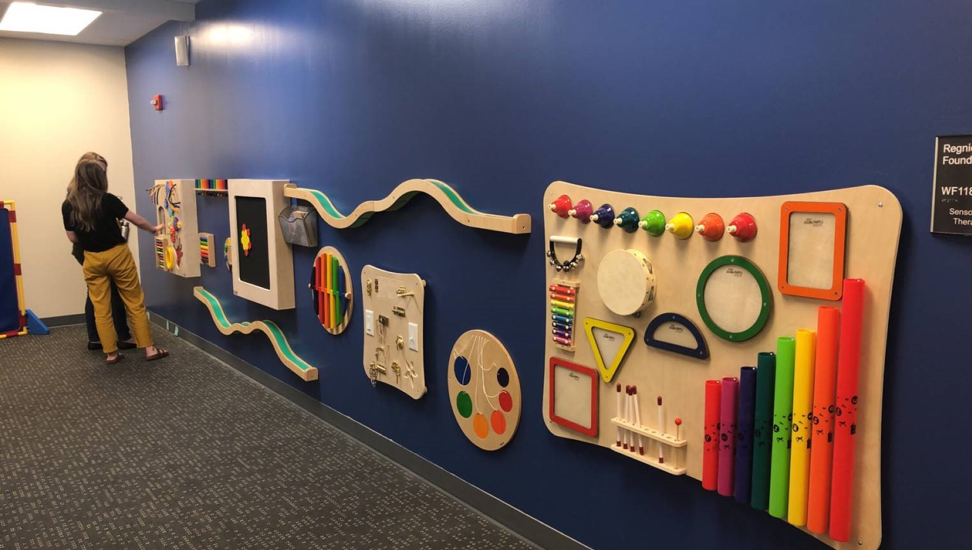Children’s Center for the Visually Impaired (CCVI) was recently awarded a $250,000 grant from the
Neighborhood Assistance Program to support the Early Intervention Program (EIP) and the Preschool/Kindergarten Program.
The EIP provides regularly scheduled home-based instruction, therapies, and center-based evaluations of the infant and toddler’s developmental progress, beginning as soon as the child is diagnosed through the age of three. The program offers a comprehensive, individualized educational and therapy program for infants and toddlers who have significant visual impairments that impact learning and development. Early intervention teachers and therapists work with parents in regularly scheduled home visits to provide strategies and activities that can be practiced daily and generalized to the world beyond. Examples of services include Orientation and Mobility, speech-language pathology, physical therapy, occupational therapy, and specialized instruction from Teachers of the Visually Impaired (TVI).









